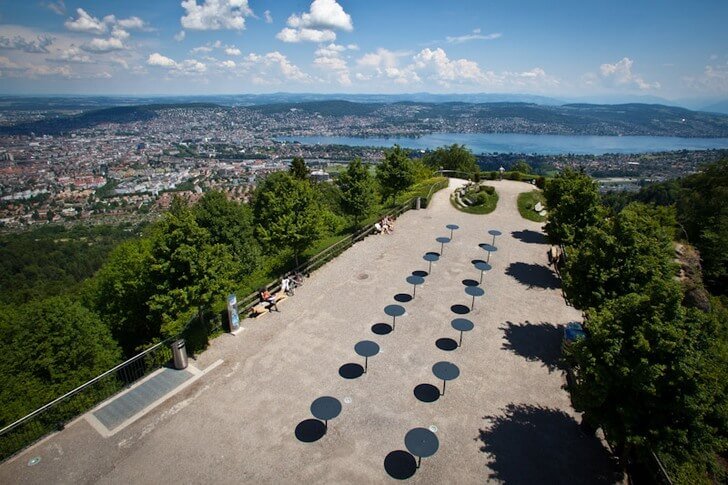Almost impeccable cleanliness of the streets, cold restraint, high standards and standard of living - all this can be found in Zurich, spread out on the banks of the Limmat River. In this city, the spirit of the age-old order and a long-established respectable way of life seems to be hovering.
The architecture in the historical part of Zurich is not luxurious - everything here serves practicality and reasonableness. The thousand-year-old facades of the Fraumünster and Grossmunster cathedrals amaze with their monumentality, but not splendor, the stone paving of the squares is in harmony with the beauty of the Bahnhofstrasse facades, and the fate of the world is decided behind the closed doors of Swiss banks.
Zurich doesn't need to flaunt itself. In this city, you can feel the power and boundless wealth that hides behind the walls of obscenely expensive boutiques, watch shops and modest facades of residential areas.
What to see and where to go in Zurich?
The most interesting and beautiful places for walking. Photos and a short description.
- Old city
- Paradeplatz
- Bürkliplatz square
- Langstrasse street
- Bahnhofstrasse
- Grossmunster
- Fraumünster Church
- St. Peter's Church
- Rietberg Museum
- Kunsthaus
- Swiss National Museum
- Beyer Watch Museum
- FIFA Football Museum
- Zurich Opera House
- Town hall
- Observatory Urania
- Zurich railway station
- Funicular Polyban
- Zurich Zoo
- Old botanical garden
- Chinese garden in Zurich
- Lindenhof
- River Limmat
- Lake zurich
- Mount Uetliberg
Old city
The architectural appearance of the historical center of Zurich - the Altstadt district, took shape over several centuries and finally took shape by the end of the 19th century. The old town is located on the banks of the Limmat River, it includes the Hochshulen, Rathaus, Lindenhof quarters. The main Zurich churches and medieval mansions are concentrated in the historical area. Some of the Altstadt buildings were erected as early as the 11th century.
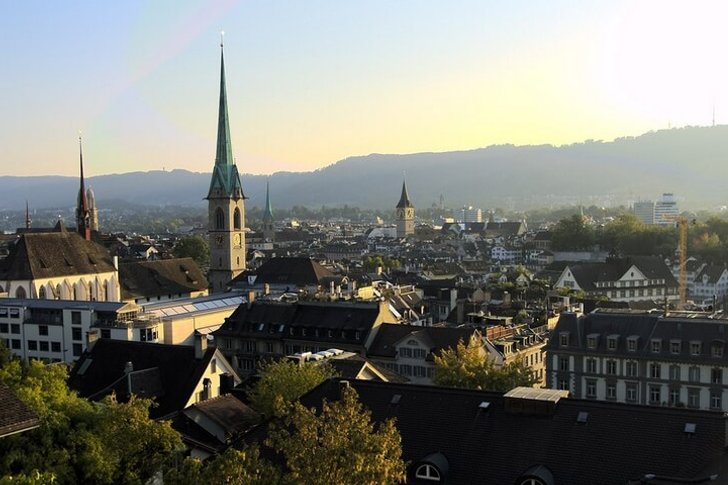
Paradeplatz
The business center of Zurich, where the offices of the world-famous Swiss banks, boutiques of watch brands, designer showrooms, jewelry stores, hotels with a beautiful view of the lake are located. Thanks to convenient infrastructure, this place is considered the best (and one of the most expensive) for shopping. Paradeplatz is also famous for its large number of confectioneries, where they make delicious pastries and cakes.
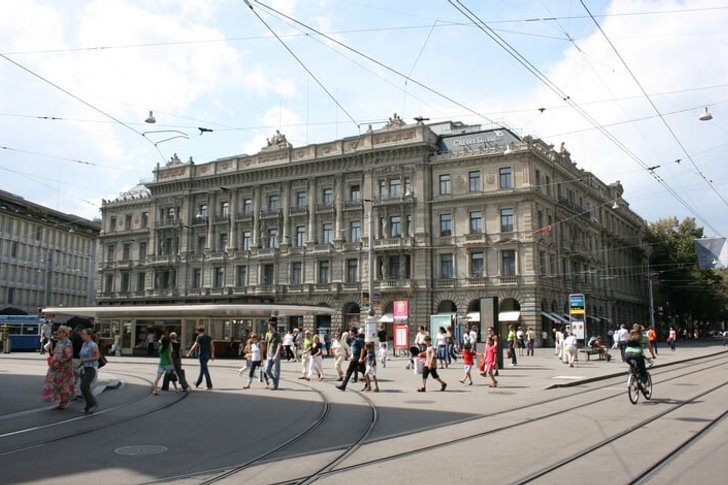
Bürkliplatz square
The square is located near Lake Zurich, one of the central streets, Bahnhofstrasse, rests against it. There is a convenient observation deck on Bürkliplatz from where you can admire the immaculate water surface of Lake Zurich surrounded by the Alps. There is also a pier from which pleasure boats leave. The square is decorated with a sculptural fountain "Geyser", created at the beginning of the 20th century.
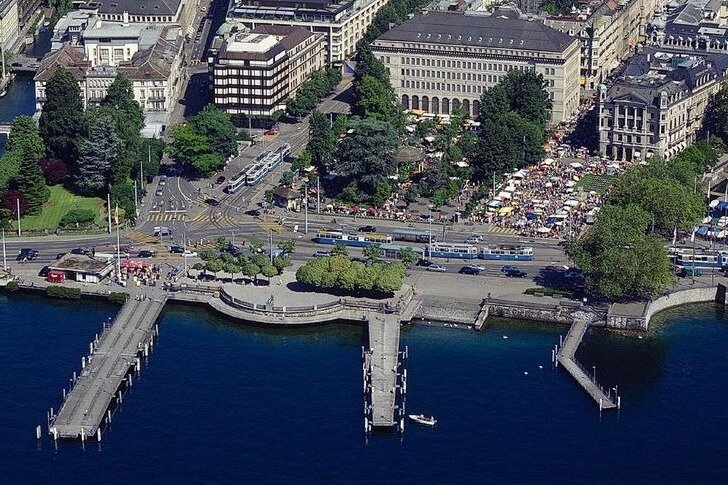
Langstrasse street
Even in such a respectable city as Zurich, there are "hot spots". They are mainly located on the Langstrasse street. This is the local "red light district" with an abundance of entertainment venues, bars, brothels. The Langstraße area has a large immigrant population. The annual street music festival "Langstrassefest" is held here, during which all the surrounding areas have fun.
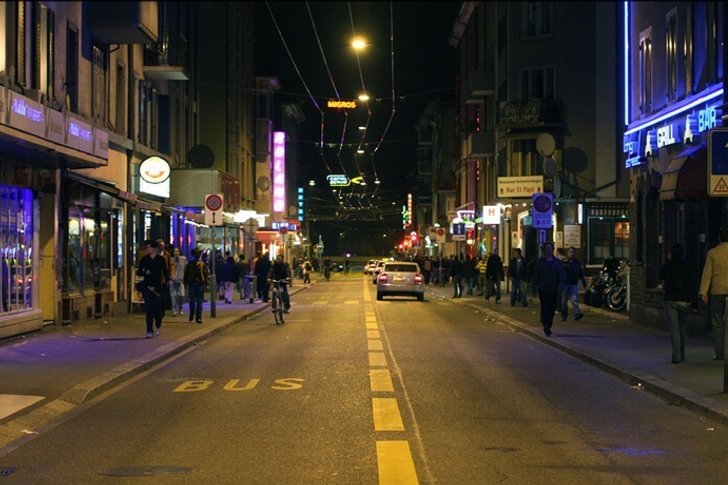
Bahnhofstrasse
The alley, which starts at the central city station and ends at Lake Zurich, is about 1.5 km long. The street passes on the site of the old fortress walls and separates the historical part of Zurich from the modern quarters. Bahnhofstrasse is one of the best places for shopping, walking and getting to know the respectable life of the city. There are many five-star hotels and expensive restaurants.
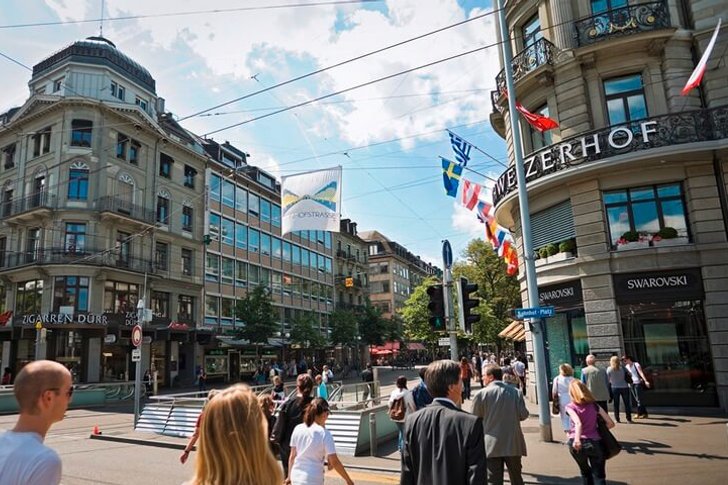
Grossmunster
The cathedral is located on the banks of the Limmat River, its gray towers are clearly visible from all the central districts of Zurich. The temple was built in a gloomy Romanesque style. It is believed that its history began in the 9th century and is associated with the name of Emperor Charlemagne. His horse fell to his knees in front of the tomb of the Christian martyrs Felix and Regula, who fled from the persecution of the Romans. The brother and sister were executed and buried on the hill where the Grossmünster was later erected.
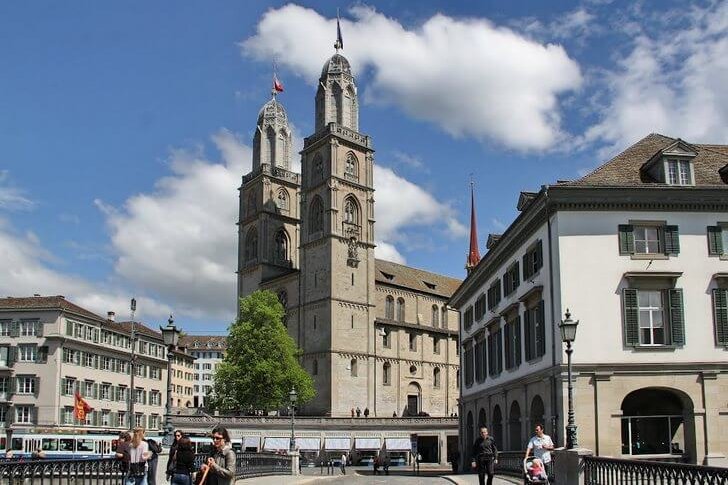
Fraumünster Church
According to surviving documents, the temple was built in the 9th century under Louis II for his daughter Hildegard, who preferred monasticism to worldly life. For a long time, there was a nunnery at the church, where representatives of noble families were tonsured. The monastery had great influence and even minted its own coin, but by the beginning of the 16th century it lost its power and was dissolved. Until the middle of the 20th century, the Fraumünster church fell into decay, but in the 60s. has been restored. The artist M. Chagall worked on the stained-glass windows.
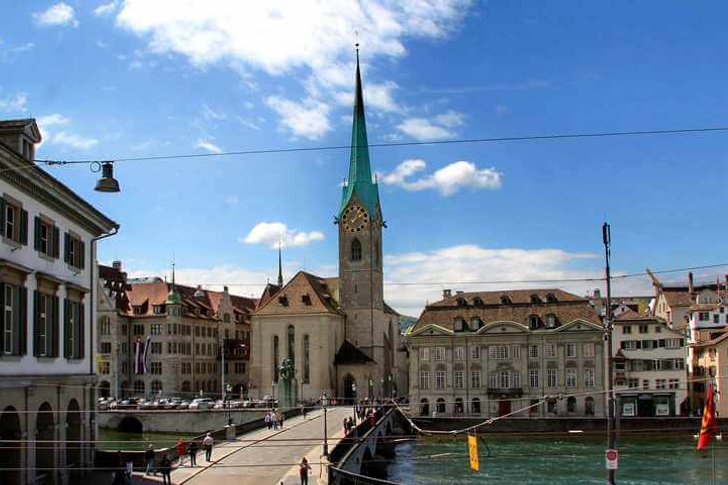
St. Peter's Church
Temple of the 9th century with an old tower clock with a 4-meter minute hand and a dial diameter of about 9 meters. The church was erected on a foundation preserved from the 8th century. In the 13th century, the building was rebuilt in the Gothic style, and in 1706 acquired its modern look. Part of the temple premises is owned by the city, the other part belongs to the Swiss Reformed Church.
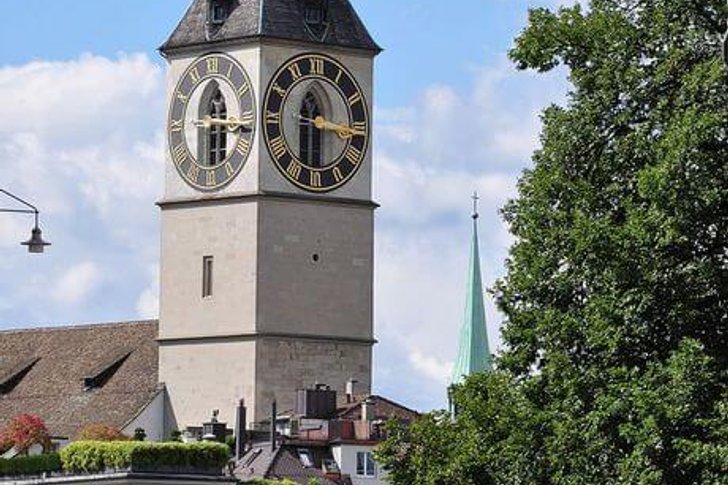
Rietberg Museum
An extensive museum collection is housed in 3 buildings - Villa Vezendok, Villa Rieterov, the mansion "Kiel House", where temporary exhibitions are regularly held. The main theme of the exposition is the history of non-European cultures. The museum exhibits exhibits brought from Asia, Oceania, America and Africa. A great contribution to the replenishment of museum funds was made by the German banker Van der Heydt.
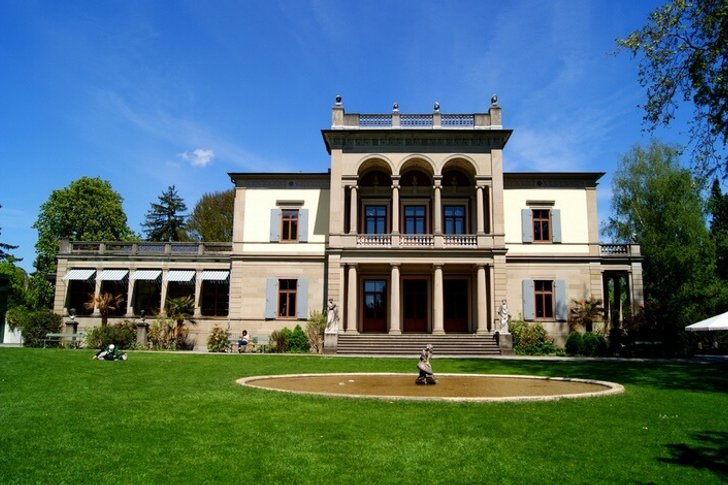
Kunsthaus
City Art Gallery, where the works of P. Fischli, I. Fusli, D. Alberto, R. Pipilotti, E. Munch, E. Manet and other masters are collected. Some tourists come to Zurich specifically to visit the Kunsthaus, as the museum's collection is valued all over the world. In addition to famous paintings by world-famous artists, here you can see interesting works by Swiss masters.
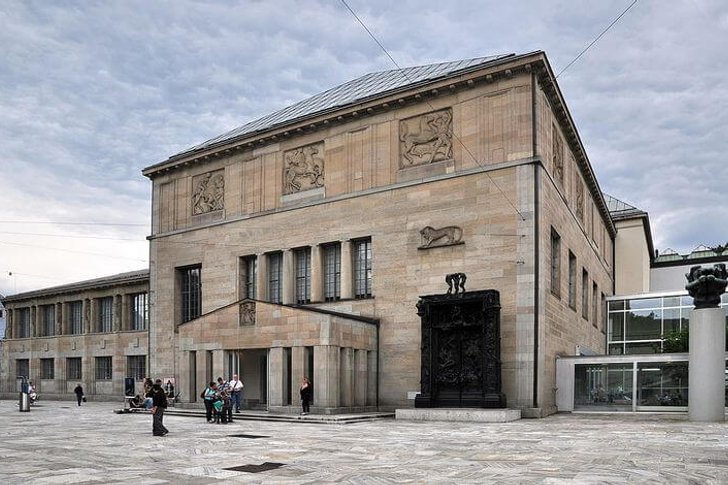
Swiss National Museum
The museum is located in the city center on the territory of a real castle with harsh walls and watchtowers. The exposition introduces visitors to the history of Switzerland from ancient times to the present day. Here are collected artifacts of the Stone Age, household items and art of the early Middle Ages, unique knightly armor, clothing, weapons and other items. A separate collection is dedicated to the history of Swiss watches.
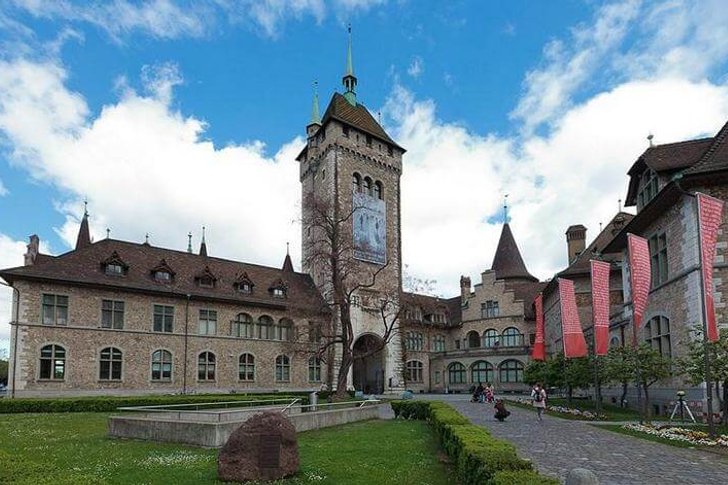
Beyer Watch Museum
The museum operates at the watch shop "Beyer Chronometry". The collection contains more than 500 exhibits that tell the story of the most prestigious and expensive brands of Swiss watch movements. Precise quartz movements, ancient chronometers, modern models, as well as very ancient exhibits that were used to measure time many centuries ago are presented here.
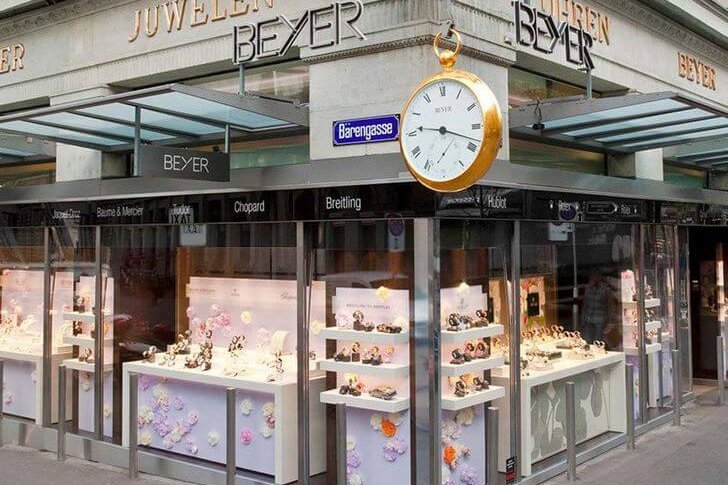
FIFA Football Museum
A modern museum of the history of football, a real "paradise" for fans of this game. The collection consists of cups, banners, photographs, documents, uniforms of players that FIFA has been collecting since 1930. Here you can see epoch-making exhibits from world championships and unique shots of the most exciting moments of the game. On the ground floor of the building where the collection is located, there is a sports bar for visitors.

Zurich Opera House
The magnificent building of the opera house is located near Lake Zurich. It was built at the end of the 19th century and restored in 1984. R. Wagner played a significant role in the formation and development of the scene. The theater is distinguished by a large number of bold interpretations of classical operas, which may appeal to connoisseurs of everything new and progressive, but scare away fans of tradition.
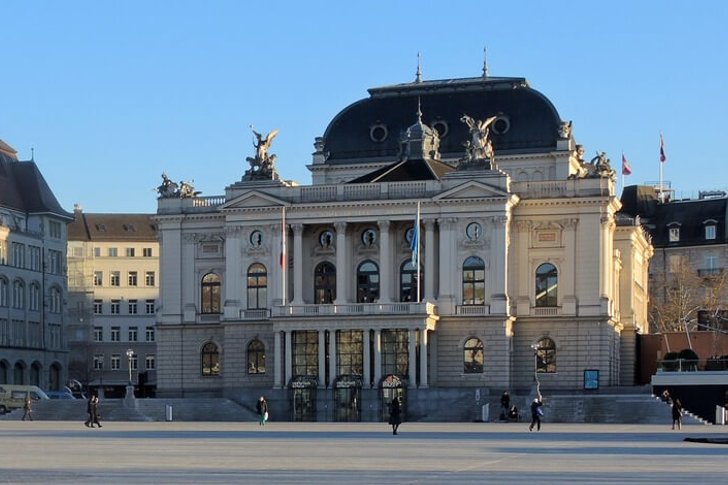
town hall
The town hall building was erected in the 17th century near the Grossmünster Cathedral in the Old Town. The construction is a symbol of the well-being of the city, a measured and orderly way of life of people. The Town Hall is built in a restrained Baroque style, but the interior is distinguished by luxury and a large number of decorative finishes. From the inside, the town hall is more like a palace than a meeting room of city authorities.
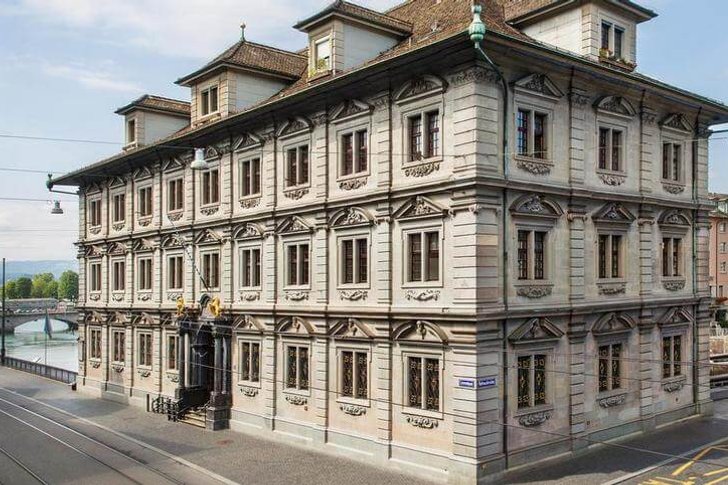
Observatory Urania
The observatory has been operating since 1907, providing an opportunity for everyone to admire the stars. It is equipped with a powerful 20-ton Zeiss telescope. In addition to contemplating distant worlds, from under the dome of the observatory you can look at the panorama of the city, the magnificent Alps and Lake Zurich. The observatory has various educational and entertaining programs, some of which are designed specifically for children.
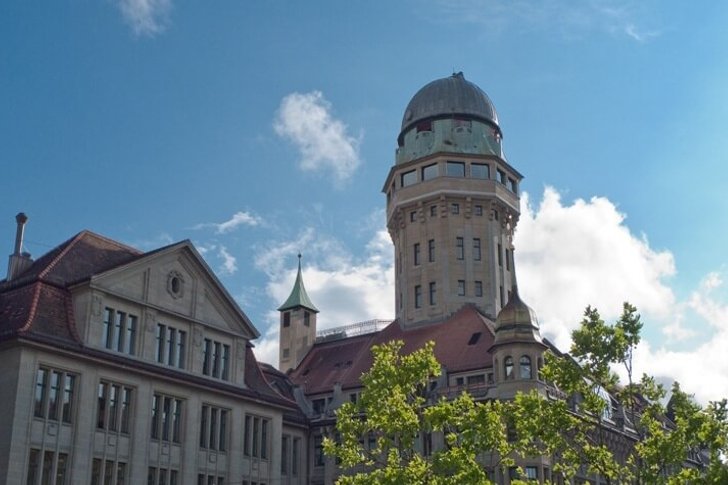
Zurich railway station
The transport hub links Zurich with other Swiss cantons, as well as with Italy, France, Germany and Austria. The tracks are laid through the picturesque mountainous area, while the train runs you can admire the alpine meadows, peaks and lakes. The station is located at the beginning of the main "artery" of the city - Bahnhofstrasse. The modern building was built in 1871 according to the project of J. F. Wanner.
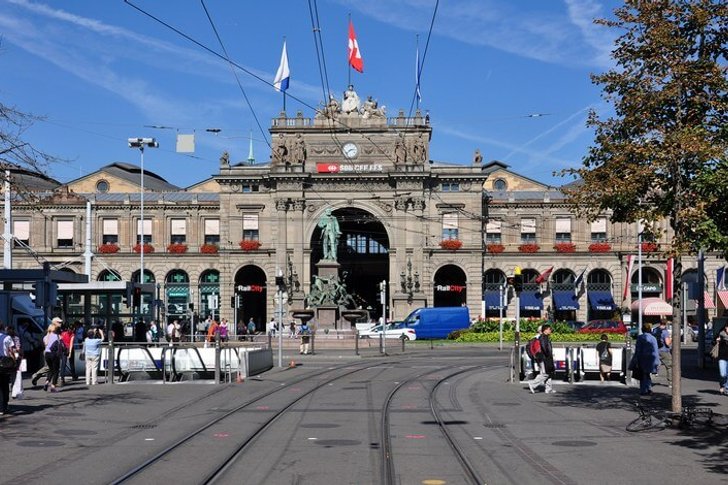
Funicular Polyban
Historical lift, which began functioning in 1889. It was created for the students of the University of Zurich, who are forced to climb a steep hill every day from the Limmat embankment to the doors of the educational institution. Over time, it has turned into a tourist attraction. In the 70s. In the 20th century, the service company of the funicular went bankrupt, the Swiss bank USB took custody of the structure.
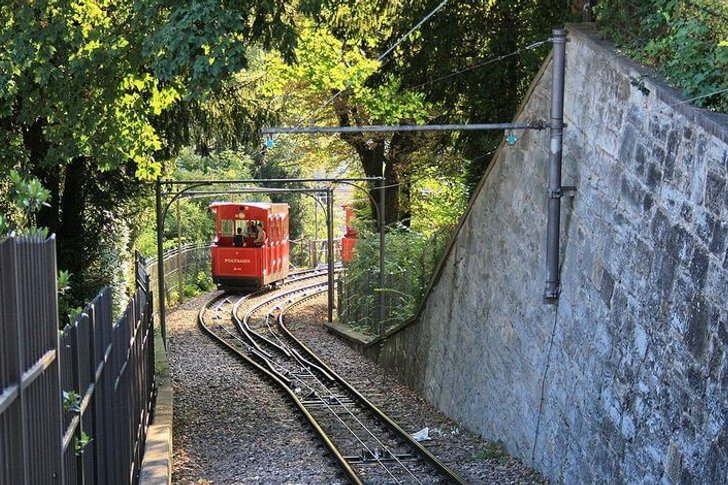
Zurich Zoo
The zoo covers an area of more than 11 thousand m² and is one of the largest, well-maintained and modern in Europe. According to common practice, the space is divided into thematic zones, in which animals from similar climatic conditions are placed in groups. Here are the ecosystems of the rainforest, Antarctica, savannas and others. There is even a makeshift agricultural farm.
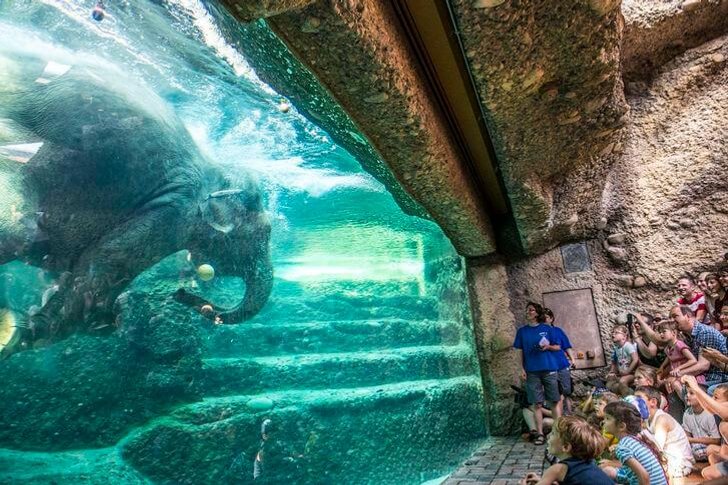
Old botanical garden
The garden was created in 1833 at the University of Zurich with the assistance of the physician and naturalist I. Gesner. Now it is considered "old", since in 1976 another garden was organized, which is also run by the educational institution. In the Old Garden grow unique trees planted by Gesner, as well as many medicinal shrubs and herbs known since the Middle Ages. There is a monument in honor of the founder in the park.
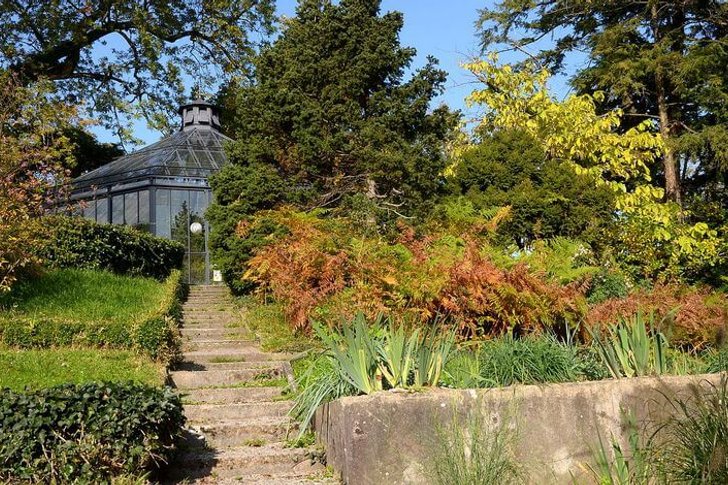
Chinese garden in Zurich
The park is a gift to Zurich from the Chinese sister city of Kunming. The garden is located in close proximity to the shores of Lake Zurich. Among the restrained Swiss luxury, this corner of the East with bridges, pagodas, and figurines of mythological characters looks especially bright. Bamboo, pines and a special type of cherry grow in the garden, adapted to local climatic conditions.
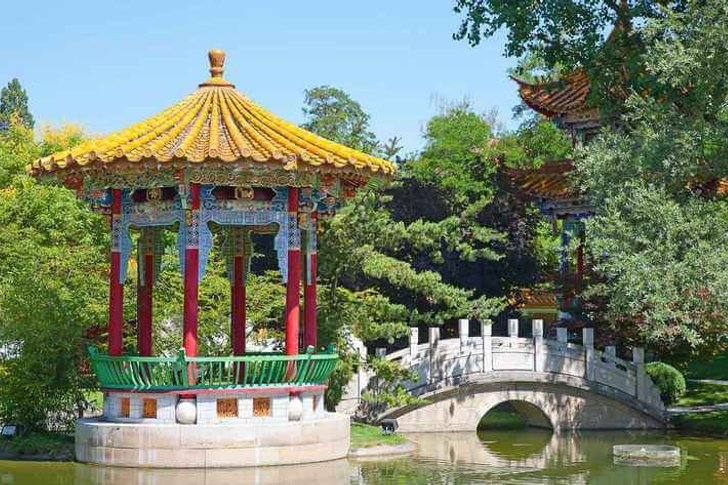
Lindenhof
The city quarter, which is part of the historical part of Zurich and is located on a hilly coast, from where the surroundings are perfectly visible. On the territory of the district there is one of the best viewing platforms of the city at an altitude of 25 meters above the river level. From this vantage point, the city seems to stretch at its very feet, making for great panoramic photos. In the Middle Ages, archery competitions were held on the top of the hill.
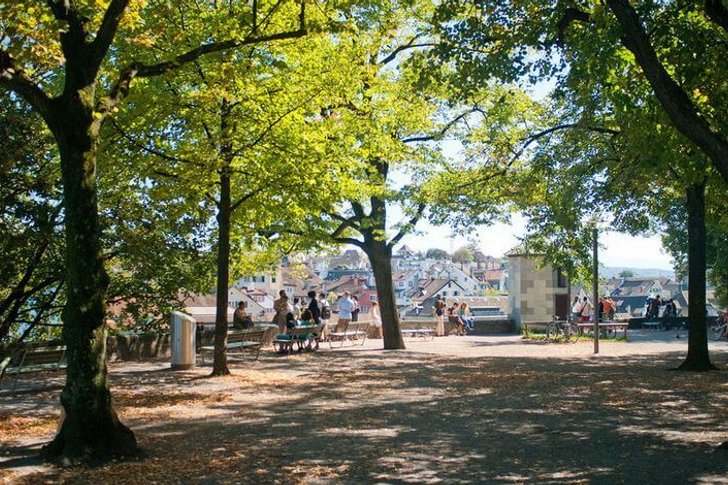
River Limmat
The main water artery of Zurich, dividing the city into two parts. It originates in Lake Zurich and carries its blue and transparent waters through several settlements. The total length of the river is about 30 km. On the Limmat promenade within Zurich, there are many attractions and recreational walking areas. In the waters of the river, swans have found shelter, which the locals feed with pleasure.
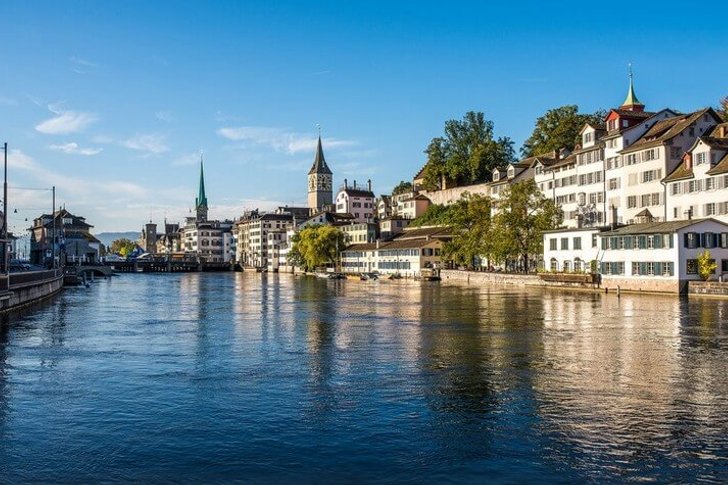
lake zurich
A picturesque reservoir, on the banks of which Zurich, Meilen, Lachen, Jona and other settlements are located. It is entangled in a network of railways and roads. River cruises are popular among tourists, although driving around the lake is just as fun. From Bürkliplatz in Zurich, you can admire the peaks of the Alps reflected on the water surface of the lake.
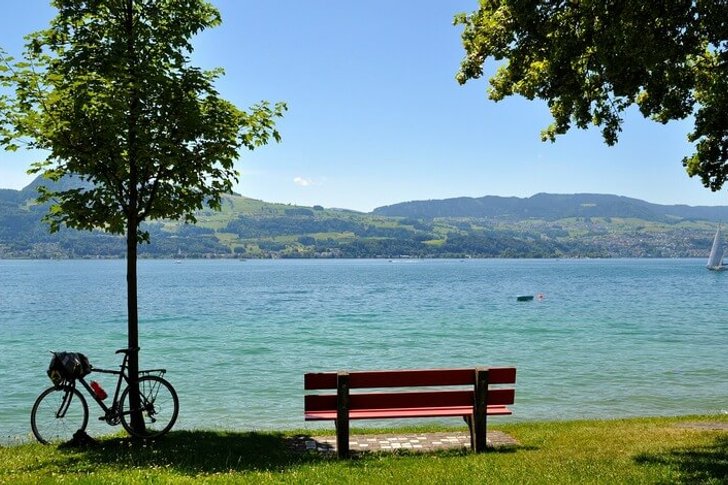
Mount Uetliberg
A regular train runs to the mountain from the city station. There is an observation deck at the top, which can be reached by a gravel road. The journey takes approximately 10 minutes. The slopes of the mountain are a landscaped park equipped with paths and ramps. It is pleasant to visit it in any season - both in summer and in winter. From the top of the mountain, you can see the city and the Alpine valleys. The local TV tower is also located here.
